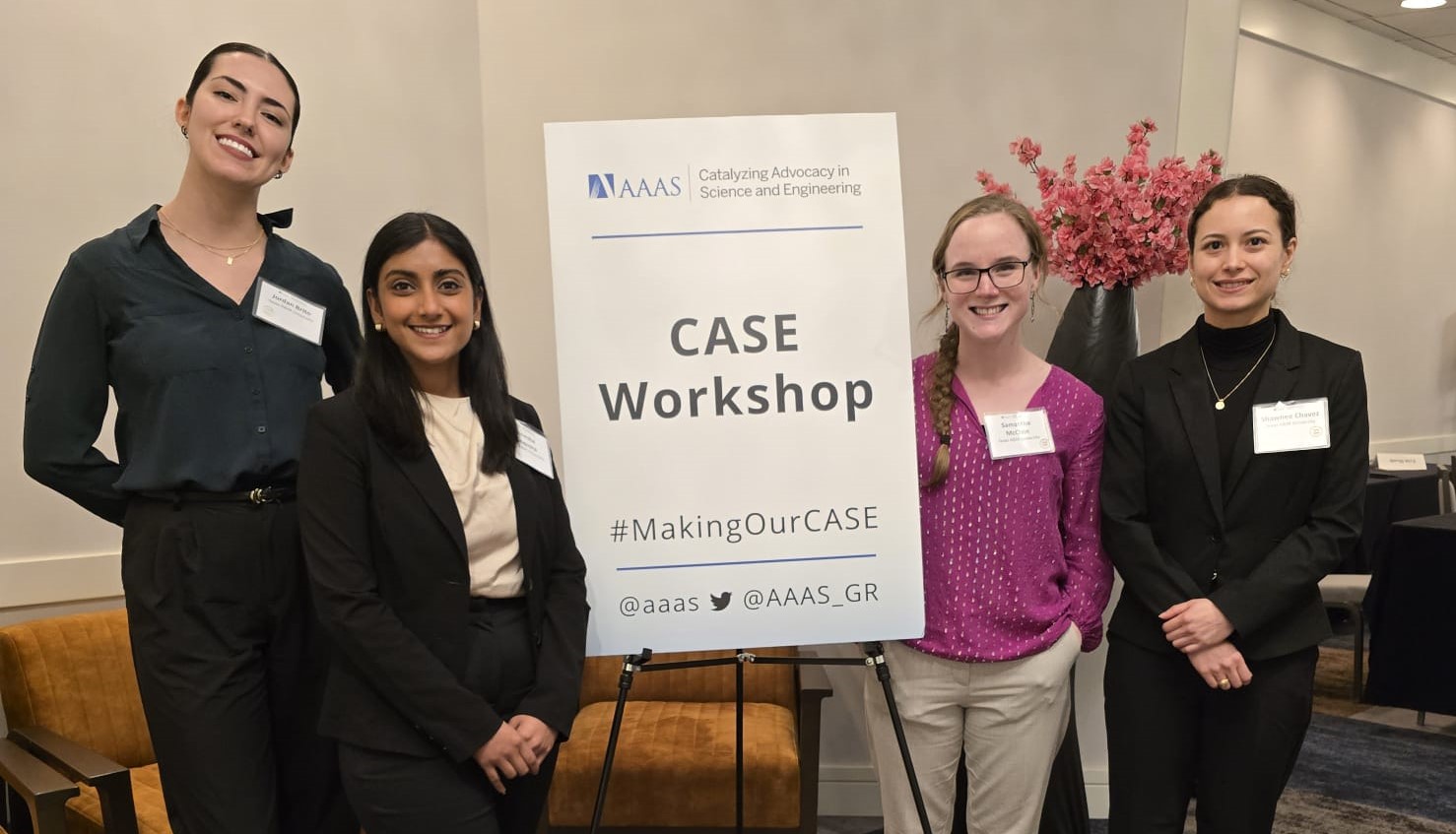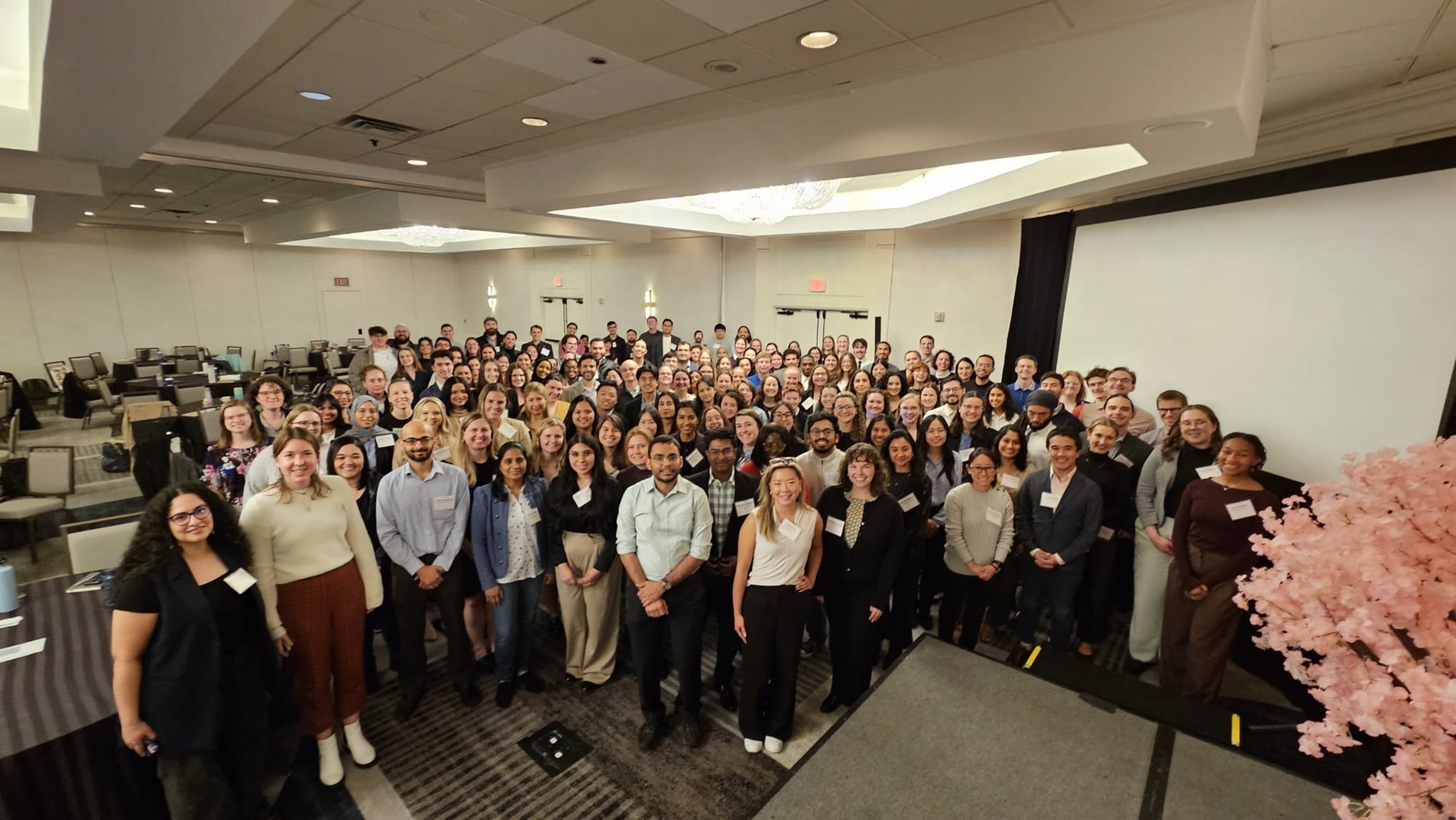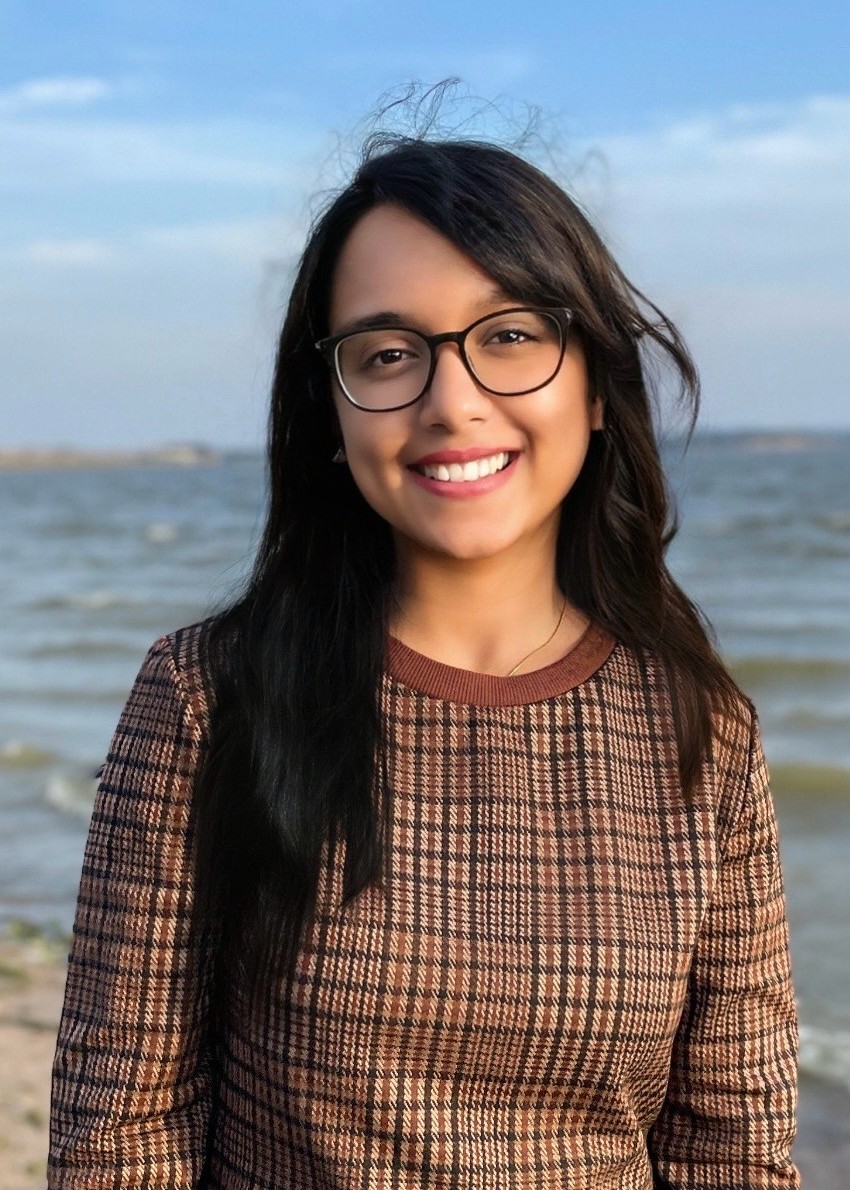News

Texas A&M Graduate Students Explore the Intersection of Science and Public Policy in Washington, D.C.
The annual Catalyzing Advocacy in Science and Engineering (CASE) workshop aims to equip students in higher education with the know-how to shape policy for the public good.
By Kahkasha Wahab, Texas A&M University Graduate and Professional School
COLLEGE STATION, June 11, 2025 – Four graduate students from Texas A&M University joined peers from across the country in Washington, D.C., from April 6-9, for the 2025 Catalyzing Advocacy in Science and Engineering (CASE) Workshop, hosted by the American Association for the Advancement of Science (AAAS).
Representing Texas A&M at this prestigious event were Jordan Brito (Materials Science & Engineering), Samantha McClain (Oceanography), Shawnee Chavez (Civil & Environmental Engineering) and Annesha Sengupta (Chemistry). All four students were selected following a competitive application process conducted by the Graduate and Professional School, which also supported their travel and participation.
The workshop united emerging scientists and engineers nationwide to explore their role in shaping legislation and advocating for federal research support. Over three days, participants engaged in interactive sessions on the intersections of science and public policy and learned advocacy and communication strategies from science policy experts. The experience culminated in Capitol Hill meetings, where students applied their new knowledge in real-world legislative discussions.

Bridging Research and Policy
The CASE workshop provided graduate students with an opportunity to connect their scientific expertise to the broader world of policy-making. Through immersive sessions and practical exercises, participants explored how research informs public policy and how effective communication can bridge the gap between science and decision-making.
Jordan Brito, a sixth-year doctoral candidate in Materials Science & Engineering, described the workshop as both intellectually stimulating and personally motivating. “I gained valuable insights into science advocacy, communication and policy. It was inspiring to hear from such high-ranking scientists about their efforts to advocate for scientific funding and reassure us that they genuinely care about our struggles as students, as well as the struggles of our professors and the universities we attend.”
Brito also emphasized the quality of specific communication training sessions. “I gained valuable insight on crafting an effective elevator pitch for both experts and non-experts in Congress, as well as how to assess the level of knowledge in our audience,” he said. “These are things we have to consider to ensure that our message comes across effectively.”
A New Career Trajectory
For some participants, gaining an insider's perspective on how Congress operates and how scientific expertise can shape legislation encouraged them to think beyond conventional academic trajectories and consider new professional pathways.
This was the experience for Samantha McClain, a fourth-year doctoral student in Oceanography. “The first day of the workshop delved into the inner workings of Congress and the budgeting process,” McClain said. “We learned about the powers of each branch of government and, later, the intricacies of appropriations for research and development. As someone who previously knew little about government, these presentations were especially valuable.”
Reflecting on her experience, McClain noted that the workshop not only broadened her understanding of the policy landscape, but also illuminated a new professional trajectory.
“Although I’ve realized that academic research may not be my long-term path, the workshop inspired me to consider a future working for a congressional science committee,” she said. “Being able to engage with a wide range of scientific topics and make a more direct impact through policy work is now a goal I’m excited to pursue.”
Policy Literacy for Engineering Solutions
The workshop offered eye-opening insights into how the political system shapes research funding and academic priorities. Through sessions on government structure and budgetary authority, students gained a deeper understanding of how policy decisions directly impact scientific work.
Shawnee Chavez, a master’s student in Civil & Environmental Engineering, shared that the experience helped her rethink the assumptions she had about democratic institutions.
“The CASE workshop was an impactful experience that broadened my understanding of political influences on scientific exploration and academic funding,” she said. “During the workshop, I learned about federal government structure and processes. My pre-existing views on democratic processes were insightfully challenged.”
Broadening the Role of a Scientist
The CASE workshop also encouraged participants to think beyond the bench or fieldwork by showcasing the diverse ways scientists can contribute to society.
Annesha Sengupta, a third-year Ph.D. candidate in Chemistry, reflected on how the experience expanded her understanding of her role as a scientist.
“As a graduate researcher, I spend most of my time focused on experiments, data analysis and scientific writing,” Sengupta said. “This workshop offered a refreshing shift in perspective, highlighting the importance of communication, collaboration and understanding how research fits into a larger professional landscape.”
She especially valued the hands-on components of the workshop.
“The science communication session gave us practical tips on talking about complex research in relatable and meaningful ways,” she said. “As someone passionate about science outreach, this gave me useful communication techniques and greater confidence to share my work with different audiences.”
Engagement with Legislative Staffs
The workshop concluded with Capitol Hill visits, where the Texas A&M students met with staff from the offices of Senator John Cornyn, Representative Joaquin Castro and Representative Michael McCaul. These meetings offered students the opportunity to discuss research-related issues and practice their newly honed science communication skills in a real-world policy context.
“The CASE Workshop is instrumental in equipping our students with the tools and confidence to ensure that science and the voices of scientists play a central role in shaping public policy,” said Dr. Fuhui Tong, Associate Provost and Dean of the Graduate and Professional School. “We are proud to support this vital professional development opportunity.”
For more information about the CASE Workshop, visit AAAS CASE.
***
Media Contact: Rob Dixon (rdixon@tamu.edu)
